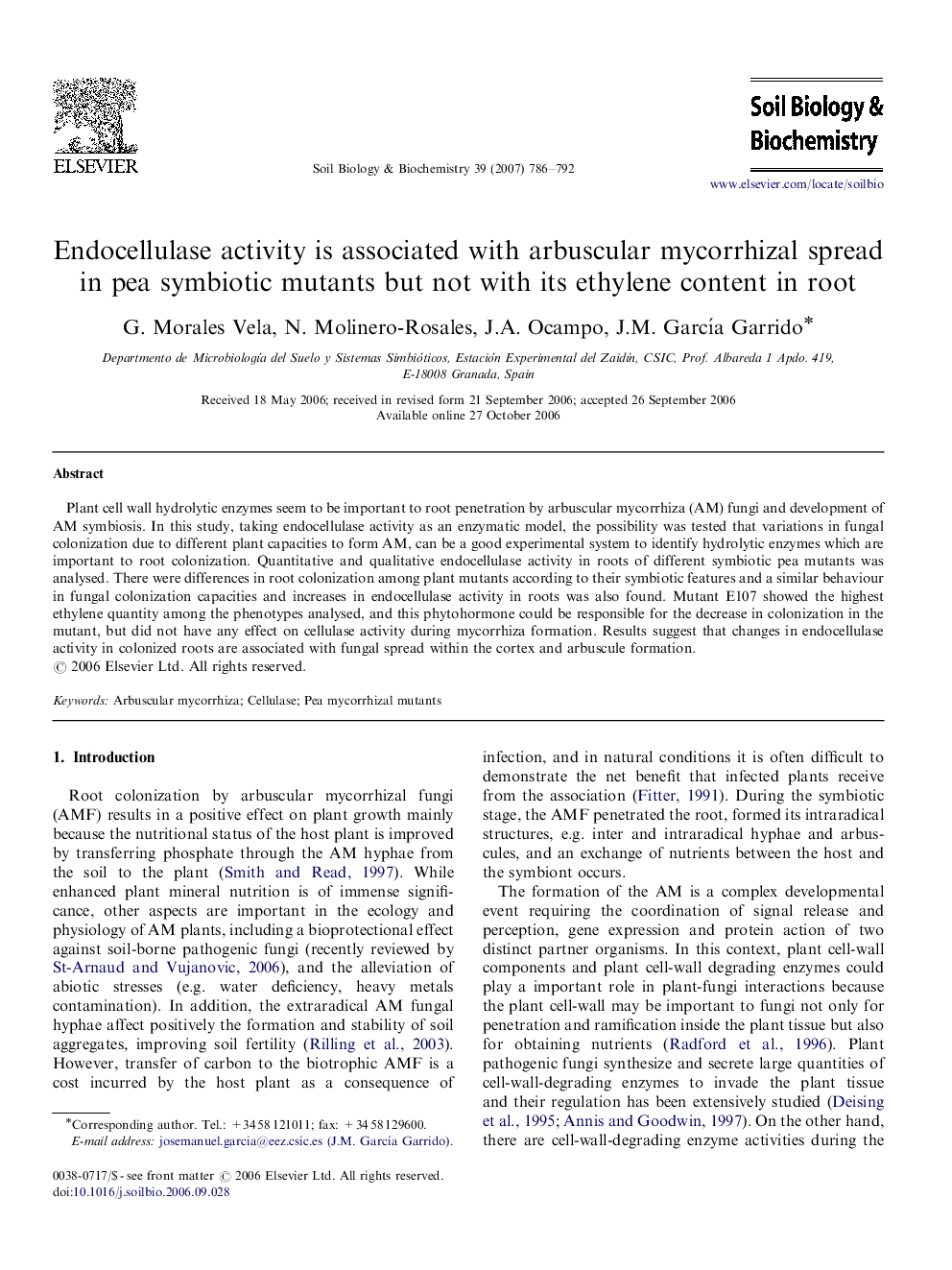| Article ID | Journal | Published Year | Pages | File Type |
|---|---|---|---|---|
| 2025736 | Soil Biology and Biochemistry | 2007 | 7 Pages |
Plant cell wall hydrolytic enzymes seem to be important to root penetration by arbuscular mycorrhiza (AM) fungi and development of AM symbiosis. In this study, taking endocellulase activity as an enzymatic model, the possibility was tested that variations in fungal colonization due to different plant capacities to form AM, can be a good experimental system to identify hydrolytic enzymes which are important to root colonization. Quantitative and qualitative endocellulase activity in roots of different symbiotic pea mutants was analysed. There were differences in root colonization among plant mutants according to their symbiotic features and a similar behaviour in fungal colonization capacities and increases in endocellulase activity in roots was also found. Mutant E107 showed the highest ethylene quantity among the phenotypes analysed, and this phytohormone could be responsible for the decrease in colonization in the mutant, but did not have any effect on cellulase activity during mycorrhiza formation. Results suggest that changes in endocellulase activity in colonized roots are associated with fungal spread within the cortex and arbuscule formation.
